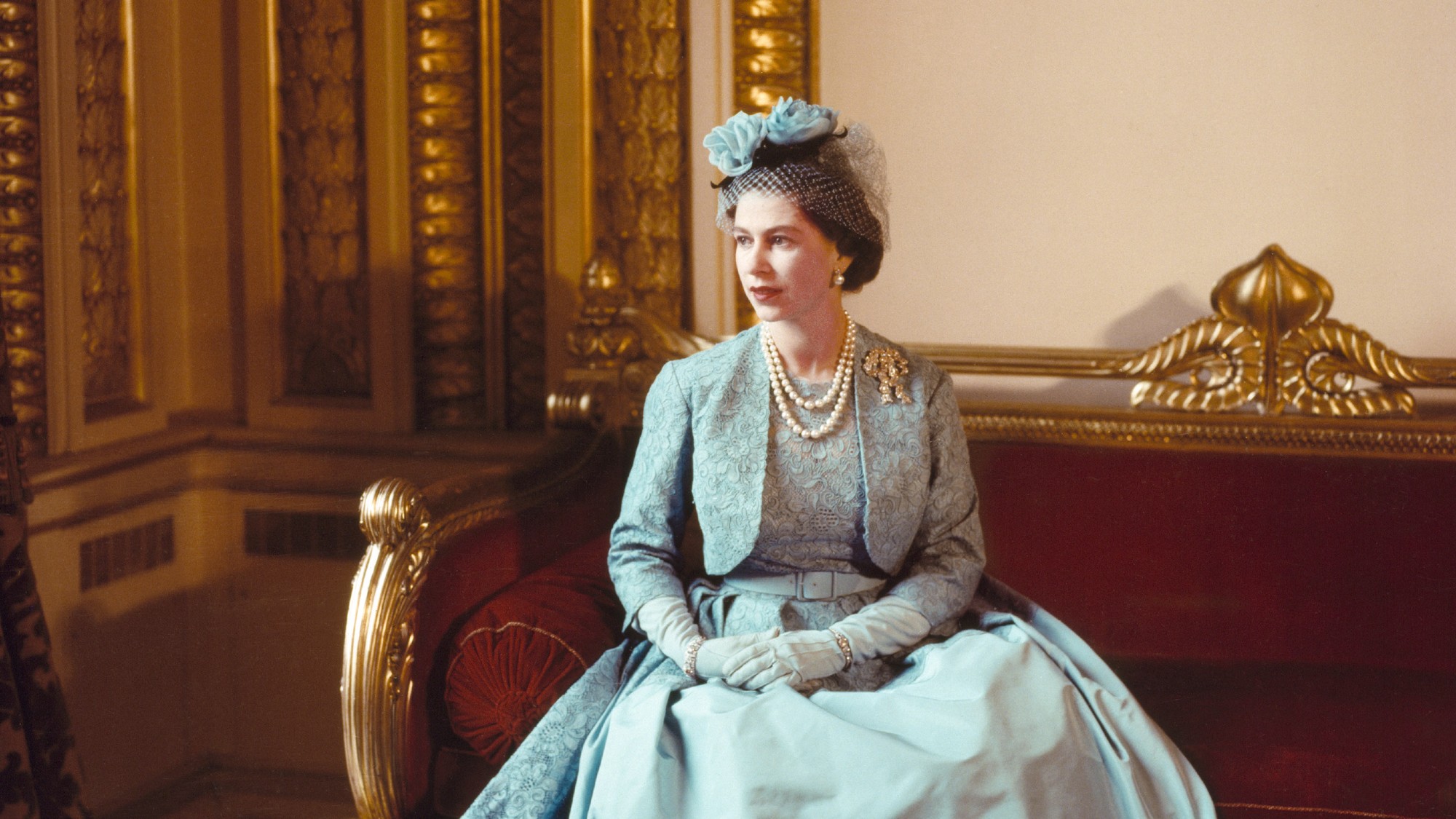Scots fears lead to call for 7-day opinion poll ban
Betty Boothroyd leads campaign as YouGov boss admits hedge funders have been seeking advance info

A free daily email with the biggest news stories of the day – and the best features from TheWeek.com
You are now subscribed
Your newsletter sign-up was successful
Amid fears that Scottish voters are being swayed by headline-grabbing opinion polls rather than persuasive political argument, a campaign has been launched by the former Commons Speaker, Lady [Betty] Boothroyd, to ban the publication of opinion survey results within seven days of any election or referendum.
Lady Boothroyd told The Independent: “The polls on the referendum are very confusing and contradictory. I am worried that they potentially could influence the outcome of the vote. I think the time has really come to do as the French do. We should ban them up to a week before polling day. Then people can make up their minds without all these confusing polls.”
Her fledgling campaign is likely to attract further support now that Peter Kellner, president of YouGov, has revealed that a number of hedge fund managers have been calling his organisation seeking advance news of the polling results from Scotland in a bid to exploit subsequent currency and share price changes.
The Week
Escape your echo chamber. Get the facts behind the news, plus analysis from multiple perspectives.

Sign up for The Week's Free Newsletters
From our morning news briefing to a weekly Good News Newsletter, get the best of The Week delivered directly to your inbox.
From our morning news briefing to a weekly Good News Newsletter, get the best of The Week delivered directly to your inbox.
Lady Boothroyd, long noted for her commonsense and down-to-earth views, is appalled that the opinion polls are no longer just about voting intentions - they are now about big money.
Kellner says he refused to give the hedge funders any advance news about his company's polling but it was easy to see why they were so keen to get a leak. It could have made them million.
According to Kelner, YouGov's "shock" poll for the Sunday Times on 7 September, putting the Yes campaign ahead for the first time, caused more panic than any other poll in years.
“The pound fell sharply on Monday, and David Cameron and Ed Miliband agreed they should head north on Wednesday rather than slug it out at Prime Minister’s Questions,” says Kellner.
A free daily email with the biggest news stories of the day – and the best features from TheWeek.com
“Nerves were no calmer on Thursday, when a number of hedge funds rang YouGov seeking early guidance on that night’s figures for the Times and Sun. Nothing doing: we and the journalists kept our figures secure until just before the 10pm release time.”
Tomorrow the hedge fund managers will be awaiting YouGov's final eve-of-referendum poll with just as much anxiety as the Yes and No camps.
Kellner says: “We hope to keep our final figures under equally tight wraps this coming Wednesday; so to those who hope for an early sniff – you know who you are – don’t even bother ringing us this time.”
However, he did stick his neck out to say: “What I can tell you is that unless something dramatic happens in the next three days, a No victory is now the more likely outcome.”
Not all pollsters show such confidence in their findings – indeed, some are getting their excuses ready in advance.
Martin Boon, director of ICM, says the pollsters are dependent on a “relatively small pot of Scots” being interviewed by all the polling companies. “In that lies a real danger about the accuracy of the polls,” he says. “This referendum has the potential to be a polling Waterloo, the biggest since [the] 1992 [election] when the polls got it wrong.
"I can’t say I would be surprised. I think the best we can hope for as an industry is that we dodge a bullet. But it’s entirely possible that the bullets do start spraying our way.”
As The Week’s poll-watcher Don Brind reported yesterday, some observers are beginning to suspect that the opinion surveys have under-estimated the size of the No vote because of the Scottish equivalent of the ‘shy Tories’ who confounded the pollsters in the 1992 general election, when they hid their true intentions from the opinion pollsters until they put their X on the ballot paper.
David Cameron, whose fate could also be decided by the referendum result, made an impassioned final plea yesterday to the Scots voters not to vote Yes just to give the Tories a kicking. The Daily Telegraph reported "Mr Cameron was close to tears" as he pleaded with the voters of Scotland not to vote for a painful divorce.
Cameron, Labour leader Ed Miliband and Lib Dem leader Nick Clegg signed a joint pledge promising ‘Devo max’ if the Scots vote No, with new powers on taxation, welfare benefits and NHS spending. The three party leaders called their promise ‘The Vow’ in a bid to convince the Scots they will not renege on it when the referendum is over.
Downing Street should have done more research before giving their pledge that title. The Vow was a 2012 romantic movie based on a true story about a Hollywood couple who get married. After exchanging their marriage vows, the pair are involved in a terrible car crash, and the wife suffers from total amnesia.
-
 Vietnam’s ‘balancing act’ with the US, China and Europe
Vietnam’s ‘balancing act’ with the US, China and EuropeIn the Spotlight Despite decades of ‘steadily improving relations’, Hanoi is still ‘deeply suspicious’ of the US as it tries to ‘diversify’ its options
-
 Best UK fashion exhibitions in 2026
Best UK fashion exhibitions in 2026The Week Recommends See much-loved and intriguing items from designers and style icons right where they belong: on display
-
 Rock Villa, Bequia: a hidden villa on an island epitomising Caribbean bliss
Rock Villa, Bequia: a hidden villa on an island epitomising Caribbean blissThe Week Recommends This gorgeous property is the perfect setting to do absolutely nothing – and that’s the best part
-
 The high street: Britain’s next political battleground?
The high street: Britain’s next political battleground?In the Spotlight Mass closure of shops and influx of organised crime are fuelling voter anger, and offer an opening for Reform UK
-
 Is a Reform-Tory pact becoming more likely?
Is a Reform-Tory pact becoming more likely?Today’s Big Question Nigel Farage’s party is ahead in the polls but still falls well short of a Commons majority, while Conservatives are still losing MPs to Reform
-
 Taking the low road: why the SNP is still standing strong
Taking the low road: why the SNP is still standing strongTalking Point Party is on track for a fifth consecutive victory in May’s Holyrood election, despite controversies and plummeting support
-
 What difference will the 'historic' UK-Germany treaty make?
What difference will the 'historic' UK-Germany treaty make?Today's Big Question Europe's two biggest economies sign first treaty since WWII, underscoring 'triangle alliance' with France amid growing Russian threat and US distance
-
 Is the G7 still relevant?
Is the G7 still relevant?Talking Point Donald Trump's early departure cast a shadow over this week's meeting of the world's major democracies
-
 Angela Rayner: Labour's next leader?
Angela Rayner: Labour's next leader?Today's Big Question A leaked memo has sparked speculation that the deputy PM is positioning herself as the left-of-centre alternative to Keir Starmer
-
 Is Starmer's plan to send migrants overseas Rwanda 2.0?
Is Starmer's plan to send migrants overseas Rwanda 2.0?Today's Big Question Failed asylum seekers could be removed to Balkan nations under new government plans
-
 Has Starmer put Britain back on the world stage?
Has Starmer put Britain back on the world stage?Talking Point UK takes leading role in Europe on Ukraine and Starmer praised as credible 'bridge' with the US under Trump